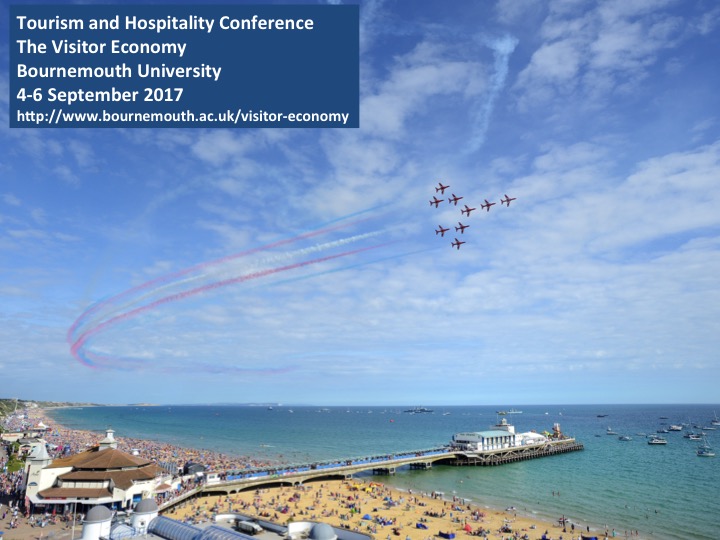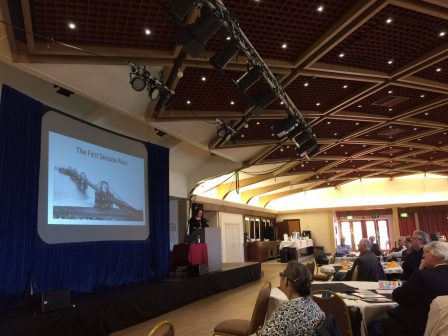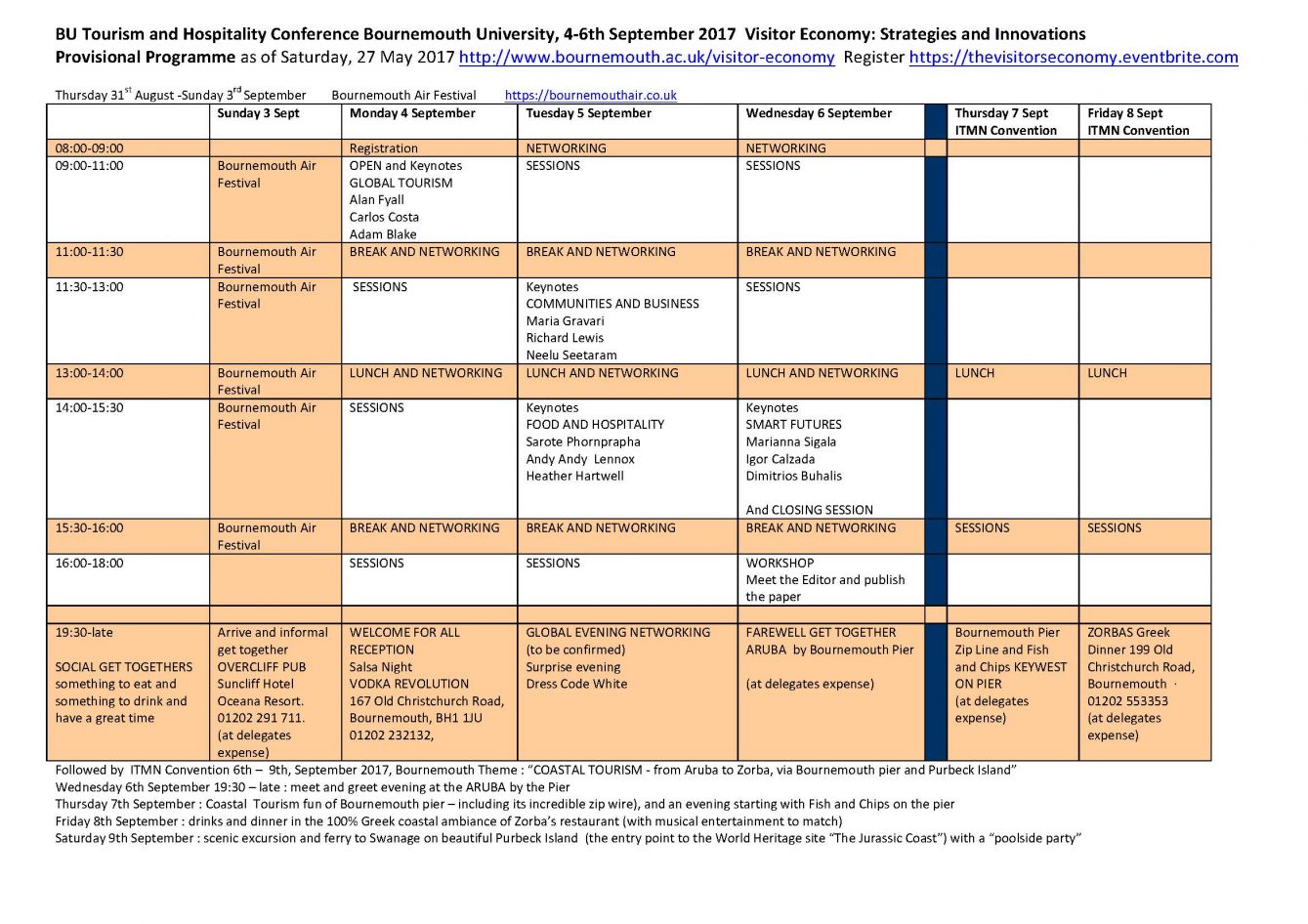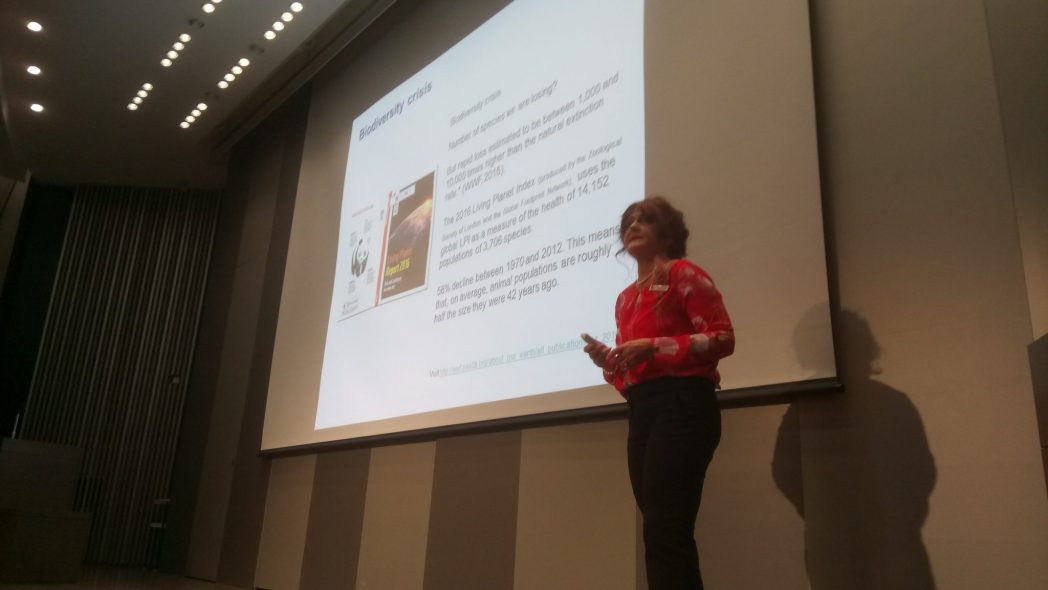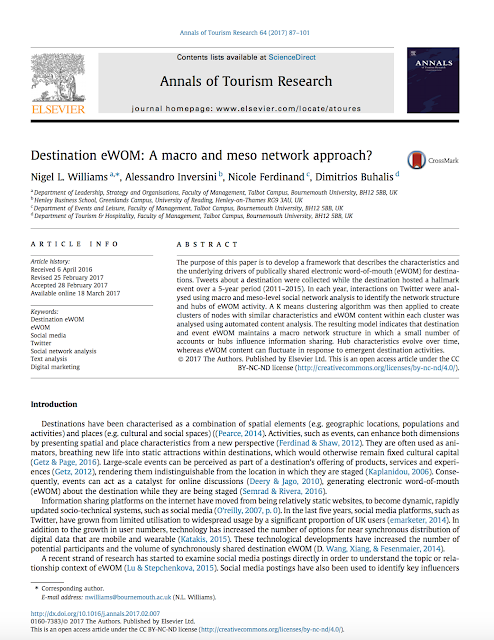Bournemouth University Festival of Learning 2017
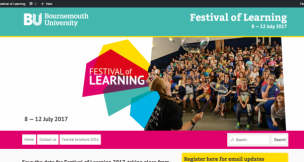 Smart Tourism and Agile Destination Management
Smart Tourism and Agile Destination Management
https://smart-tourism-and-agile-destination-management.eventbrite.co.uk
Bookings on https://www.ticketsource.co.uk/date/366208
Tuesday 11 July 2017 10:00 – 17:00
eTourismLab, Bournemouth University, Share Lecture Theatre, Talbot Campus, BH12 5BB
The internet of things, big data, wearable technology and augmented reality are just a handful of the technological innovations driving change in our business and personal lives. To stay competitive, the tourism industry needs to understand, respond and harness these opportunities. Research from BU into Smart Tourism destinations can help organisations to take advantage of new developments and strengthen both their strategies and competitiveness.
Smart systems take advantage of interconnectivity and interoperability of integrated technologies to reengineer processes and data in order to produce innovative services, products and procedures towards maximising value for all stakeholders. Smartness reengineers economies and industries, and shapes products, actions, processes and services in real-time. Agility engages different stakeholders simultaneously to optimise the collective performance and competitiveness and generate benefits for all involved in the value system. To achieve that, smart systems use innovative robust technology, the Internet of everything, cloud computing, big data, advanced data analytics, and a robust and ever expanding communications infrastructure.
Based on Smart Cities research and methodologies, a Smart Tourism Destination successfully implements smartness and agility to ensure that everybody is interconnected and processes are integrated towards value generation, through dynamic co-creation, sustainable resources and dynamic personalisation and adaptation to context. All suppliers and intermediaries, the public sector, as well as consumers and various interested parties are networked, dynamically co-producing value for everybody interconnected in the ecosystem.
Smart Tourism and Agile Destination Management
Tuesday 11 July 2017 10:00 – 17:00
eTourismLab, Bournemouth University, Share Lecture Theatre, Talbot Campus, BH12 5BB
09:30-10:00 Registration
10:00-10:30 Welcome and Smartness and Agility in Tourism
Professor Dimitrios Buhalis Head of Department Tourism and Hospitality and Director eTourismLab
10:30-12:00 Smartness and agility : technology towards a connected world
Dimitrios Buhalis and Bournemouth University eTourism Lab showcase
Malvika Nighojkar eTourismLab Smart Tourism: Case Study of Bournemouth
Yeyen Sinatra eTourismLab Real time tourism and cocreation
Sharon Nyangwe eTourismLab Branding transformation through cocreation
Ruth Spencer, Manager Creative & Digital, Bournemouth Borough Council Digital Transformation in Bournemouth
Sam Merrick, Digital & Social Media Consultant, Social Media Strategy for Bournemouth as a Destination
12:00-13:00 Break
13:00-14:30 Smart Business and agile innovations – Best practice case studies and business requirements
John Marsh Oceana Hotels
Mark Gribb and Matt Lawrence, Urban Guild
Andy Lennox Koh Thai
Peter Collett, Bournemouth Pier and RockReef
Sarah Luiz Aruba and WestBeach
14:30-15:00 Break
15:30-16:30 Smart Destinations and building agile ecosystems
Nikolaos Maniatis The Cato Bot Company, Chatty Opportunities in Tourism: text and voice chat bots
Jean Mark Flambert Vice President Sales and Marketing UK and Europe at Antigua and Barbuda Tourism Authority
Jon Weaver, Bournemouth Tourism – Smart Bournemouth
16:30-17:00 Smart Futures, ways forward and conclusions
Professor Dimitrios Buhalis Head of Department Tourism and Hospitality and Director eTourismLab
Bournemouth University Festival of Learning 2017
Smart Tourism and Agile Destination Management
https://smart-tourism-and-agile-destination-management.eventbrite.co.uk
Bookings on https://www.ticketsource.co.uk/date/366208
Tuesday 11 July 2017 10:00 – 17:00
eTourismLab, Bournemouth University, Share Lecture Theatre, Talbot Campus, BH12 5BB


